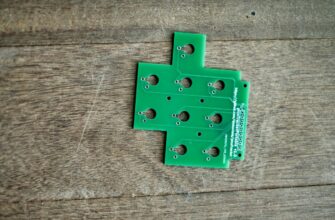Introduction: Why Bitcoin Security is Non-Negotiable
Bitcoin offers incredible potential, but its digital nature means security is paramount. Unlike traditional banks, *you* are solely responsible for safeguarding your Bitcoin. Losing access to your keys or falling victim to a hack often means losing your funds permanently. This guide provides a comprehensive roadmap on how to buy and store Bitcoin safely, covering essential steps, best practices, and critical security measures to protect your investment from common threats like hackers, scams, and human error. Understanding these fundamentals is the first step towards confidently navigating the cryptocurrency landscape.
How to Buy Bitcoin Safely: Step-by-Step
Purchasing Bitcoin securely involves choosing reputable platforms and following diligent practices. Here’s a breakdown:
- Choose a Reputable Exchange: Research is crucial. Opt for well-established, regulated exchanges with strong security features (like Coinbase, Kraken, or Binance). Check reviews, security history (look for no major breaches), and supported features (like fiat on-ramps and 2FA). Avoid obscure platforms promising unrealistic returns.
- Secure Your Account: Before buying anything, fortify your exchange account.
- Enable Two-Factor Authentication (2FA): Always use an authenticator app (Google Authenticator, Authy) – SMS 2FA is vulnerable to SIM-swapping attacks.
- Use a Strong, Unique Password: Create a complex password and store it securely in a password manager (like Bitwarden or 1Password). Never reuse passwords.
- Complete KYC Verification: Legitimate exchanges require identity verification. This adds a layer of security and compliance.
- Fund Your Account Securely: Link your bank account (ACH transfer) or debit/credit card. Bank transfers are generally safer and cheaper than card purchases. Be wary of sharing excessive financial details.
- Place Your Buy Order: Decide on the amount (consider dollar-cost averaging for less volatility risk) and execute a market or limit order. Double-check all transaction details before confirming.
- Withdraw Your Bitcoin Promptly: Never leave large amounts of Bitcoin on an exchange long-term. Exchanges are prime targets for hackers. Once purchased, transfer your Bitcoin to your personal, secure wallet (covered next). Treat exchanges like a temporary gateway, not a bank vault.
How to Store Bitcoin Safely: Choosing and Using Wallets
Your Bitcoin is only as secure as the wallet holding its private keys. Here are the main storage options, ranked by security:
- Hardware Wallets (Cold Storage – Most Secure): Physical devices (like Ledger Nano X/S or Trezor) that store private keys offline. They are immune to online hacks. Best for: Long-term storage of significant amounts. Security Tips: Buy directly from the manufacturer, set up a strong PIN, securely store the recovery seed phrase (never digitally!), and verify transactions on the device screen.
- Software Wallets (Hot Wallets – Convenient but Less Secure): Apps or programs on your phone or computer (like Exodus, Electrum, or Trust Wallet). They are connected to the internet. Best for: Smaller amounts used for frequent transactions. Security Tips: Only download from official sources, enable all security features (PIN, password, biometrics), keep software updated, use on a secure device with antivirus, and back up your seed phrase offline.
- Paper Wallets (Cold Storage – Advanced): Physically printed QR codes containing your public and private keys. Truly offline. Best for: Technically savvy users for long-term, ultra-secure storage. Security Risks: Vulnerable to physical damage, loss, theft, and printer malware. Requires extreme care in generation and storage. Not recommended for beginners.
- Exchange Wallets (Least Secure for Storage): The wallet provided by the exchange where you bought Bitcoin. Major Risk: “Not your keys, not your coins.” You rely entirely on the exchange’s security, which has proven vulnerable. Only use for: Actively trading small amounts. Never use as primary long-term storage.
The Golden Rule: Protect Your Seed Phrase! Your recovery seed phrase (usually 12 or 24 words) is the master key to your Bitcoin in non-custodial wallets (hardware, software, paper). If someone gets it, they own your Bitcoin. If you lose it, you lose access forever. Always:
- Write it down on durable material (metal backups are best).
- Store multiple copies in separate, secure physical locations (e.g., safe deposit box, home safe).
- Never store it digitally (no photos, cloud storage, emails, texts).
- Never share it with anyone.
Bitcoin Safety FAQ: Your Questions Answered
Q: Is Bitcoin safe to buy and hold?
A: Bitcoin itself is a secure technology (blockchain), but the safety of *your* Bitcoin depends entirely on how you buy it and, crucially, how you store it. Following the security practices outlined in this guide significantly mitigates risks.
Q: What is the absolute safest way to store Bitcoin?
A: For most users, a hardware wallet purchased directly from the manufacturer, secured with a strong PIN, and with the recovery seed phrase stored physically (ideally on metal) in multiple secure locations, offers the best combination of security and usability for long-term storage.
Q: Can I lose my Bitcoin if I forget my password?
A> Yes, if you lose the password to a software wallet and don’t have the recovery seed phrase, your Bitcoin is likely lost forever. This is why safeguarding your seed phrase is critical – it’s your ultimate backup, independent of any password.
Q: What happens if my hardware wallet breaks or is lost?
A> As long as you have your securely stored recovery seed phrase, you can recover your Bitcoin onto a new hardware wallet (or compatible software wallet). The seed phrase is what matters, not the physical device itself.
Q: Are software wallets safe enough?
A> Reputable software wallets with strong security features (encryption, PIN, optional 2FA) are generally safe for storing smaller amounts you plan to use or trade frequently. However, they are connected to the internet and inherently more vulnerable than offline hardware wallets. Never store large amounts long-term in a hot wallet.
Q: Should I use a custodial service?
A> Custodial services (like some exchanges or apps) hold your private keys for you. While convenient, this means you trust their security completely (“not your keys, not your coins”). They are suitable for beginners or small, active trading balances, but for true security and ownership, a non-custodial wallet (where you control the keys) is essential for significant holdings.
Conclusion: Security is an Ongoing Practice Knowing how to buy and store Bitcoin safely is fundamental. By choosing reputable exchanges, enabling robust security features (especially 2FA), prioritizing self-custody with a hardware wallet for long-term holdings, and obsessively protecting your recovery seed phrase, you take control of your financial sovereignty. Stay vigilant against phishing scams, keep software updated, and continuously educate yourself. Bitcoin security isn’t a one-time setup; it’s an essential, ongoing discipline for protecting your valuable digital assets.








